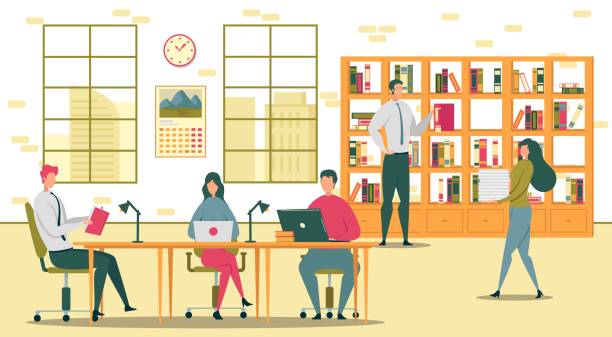
Putting the Public Back in Public Libraries
Proposing a revamp of the Karnataka Public Libraries Act, 1965
Context
Often referred to as the people’s university, public libraries form an integral part of the social framework of a society. They are active, dynamic and democratic spaces within a community.
In Karnataka, public libraries are governed by the Karnataka Public Libraries Act, 1965. A lack of legislative review over the years has led to problems with the availability and accessibility of these libraries to all sections of people.
From a perspective of understanding the usage of public libraries in the state, and people’s views on the facilities available, the Karnataka office at Vidhi undertook extensive research to identify lacunae in the existing system. Vidhi’s study makes specific recommendations to reconceptualise public libraries as user-friendly, accessible and vibrant community spaces. In particular, this requires a complete revamp of the Karnataka Public Libraries Act, 1965.
Gaps in the existing public libraries system
Through in-depth research, including interviews with government stakeholders and a range of users, the study identified the following key challenges:
Lack of ownership by the community
An over centralised system of governance defeats the concept of ownership by the local community. It is ironic that local library authorities do not have the power to purchase books that are required by the local community. Instead, Karnataka has a Book Selection Committee, under the Department of Public Libraries, which decides this, and any change suggested by local administrators has to be approved at the state level. This inhibits the scope of these libraries to thrive as inclusive local cultural centres.
Running expenditure impacted by poor financial management
According to the Karnataka Public Libraries Act, 1965, libraries are entitled to 6% of the property tax collected by the urban local bodies in the form of library cess. The money is meant to cover the capital cost of buildings, assets and the recurring expenses of purchasing books and subscriptions. However, due to untimely payment of cess by urban local bodies, the Department of Public Libraries finds it hard to meet the running expenditure.
There is thus a need to hold urban local bodies responsible and accountable for transferring cess to library authorities, including being penalised if deadlines are missed. A contingency fund provided by the state government must be operationalised in case of delays. The study also proposes a specific amendment to Section 30 of the Karnataka Public Libraries Act, 1965, drawing on lessons from other states like Tamil Nadu, which ensures that 20 percent of the cess collected is maintained in a general fund.
Lack of Access to persons with disabilities
‘Access’ in the case of public libraries includes physical, perceptual, developmental, sensory, intellectual, emotional and psychological access.. However, this is a glaring gap in the case of Karnataka – for instance, the Karnataka government introduced the Sarvajanika Granthalaya app through the library digitisation project, but this app is not accessible to persons with disabilities. It is imperative that public libraries address the issue proactively.
Lack of Physical infrastructure and basic services
The study found that in various public libraries, even basic services and infrastructure were inadequate – for instance, in districts like Ankola, Sirisi and Haliyal, toilets, drinking water and seating facilities were lacking. Many of these shortages stemmed from paucity of funds.
Impact
Vidhi presented its research to the Karnataka Urban Infrastructure Development Finance Corporation (KUIDFC) to initiate discussions and conversations on the relevance of public libraries. Researchers are in the process of finalising the revised report, which will be shared with the Government of Karnataka, and specifically the Committee constituted by the state Department of Primary Education, where amendments to the existing legislation are currently being considered.
Vidhi also continues to take the research to a range of additional stakeholders, including citizens, civil society groups, librarians, and groups such as members of the Free Library Network, among others. For instance, leading organisations working in this field such as Indian Institute of Human Settlements(IIHS), Bengaluru, Goethe-Institut, Samarthanam Trust, Kerala Public Library Association and Community libraries working across the country have participated in discussions on Vidhi’s research.
“The Public Libraries in Karnataka are currently facing problems with infrastructure and maintenance. Basic amenities are very important and crucial for the development of public libraries. The existing legislation on public libraries (Karnataka Public Libraries Act, 1965) is more than 50 years old. Therefore, this exercise of bringing in legislative reforms is needed.”
Dr. A. S Ravindra, Former Chief Secretary, Government of Karnataka